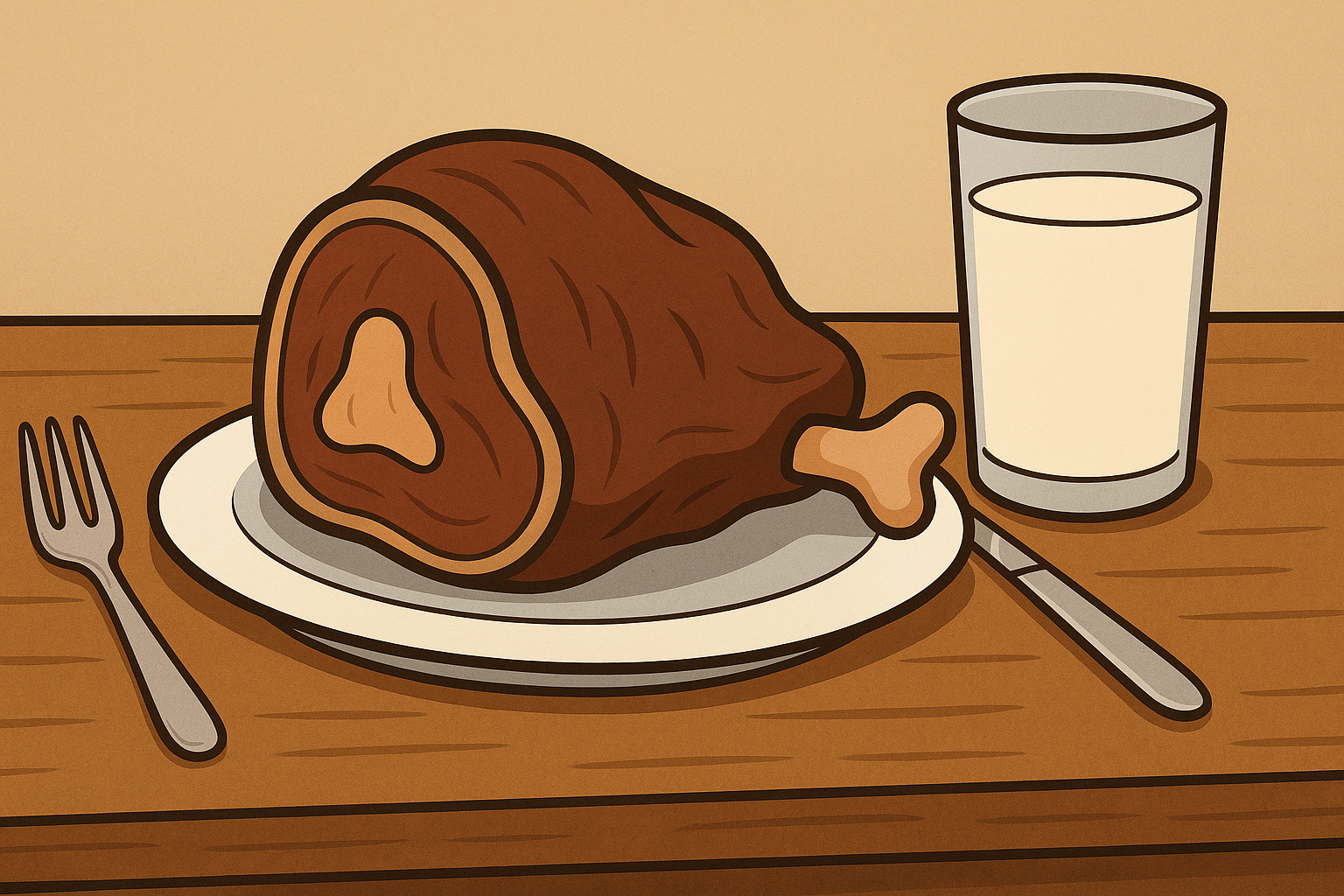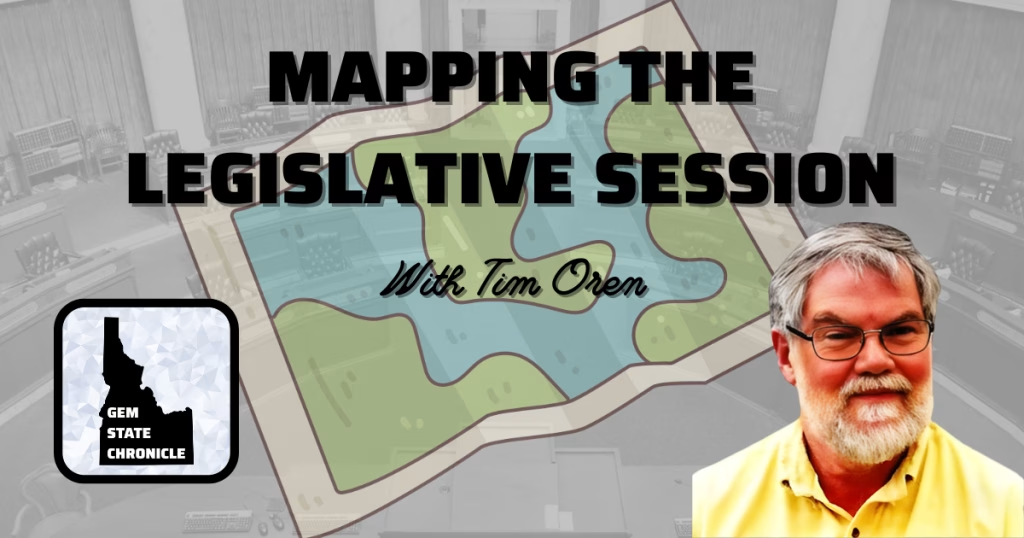In his letter to the church in Corinth, the Apostle Paul used a food metaphor for spiritual instruction:
But I, brothers, could not address you as spiritual people, but as people of the flesh, as infants in Christ. I fed you with milk, not solid food, for you were not ready for it. And even now you are not yet ready, for you are still of the flesh. For while there is jealousy and strife among you, are you not of the flesh and behaving only in a human way?
1 Corinthians 3:1-3 ESV
Paul’s imagery of milk and solid food is helpful when thinking about politics today. Some platforms feed people only “milk”—surface-level slogans and recycled outrage—while avoiding the harder, meatier questions of policy strategy.
Too many political outlets rely on clichés and bumper-sticker slogans, mixed with gossip about elected officials or private citizens. They exhort readers to “hold the line” without ever explaining what that means in practice. Beyond social media shares and petitions that conveniently grow their email lists, there is little substance.
This is milk, not meat.
Here’s one example of what I’m talking about. Many Idaho conservatives want to see property taxes abolished. That’s fine, I agree in principle that being taxed on an asset that I own is far less fair and in line with our founding principles than being taxed on economic transactions. Yet too many stop the conversation there. To them it’s a moral issue and simply must be done—don’t bother with the details.
But ending property taxes raises what to me are obvious questions:
- How will cities, counties, and school districts fund the things their citizens want to pay for?
- How can we maintain local control of local budgets?
- Would this policy encourage absentee landlords, which would proportionally increase taxes on Idaho residents?
- Given that property taxes have been the American norm since the Revolution, and in Idaho since before statehood, how do we navigate both history and principle?
Too often, these questions are brushed aside with bumper-sticker slogans like “taxation is theft,” as if that ends the discussion. But real change requires grappling with details, not waving them away.
When I ask questions like these, it is not because I oppose the principle. Rather, it is because obstacles must be identified and addressed before reform can succeed. Yet I am often accused of being against an idea simply because I won’t ignore the practical realities.
The frenetic social media environment that dominates political culture today demands instant hot takes on every issue, regardless of how much information you actually have or how well you understand the subject. Something happens, and everyone races to post the fastest, sharpest opinion. For example, some Idaho legislators had already dismissed Sen. Ben Adams’ public lands proposal before the text was even available—perhaps simply to stay ahead of the news cycle.
I shared my initial impressions after reading the proposed amendment and hearing directly from Sen. Adams, but it is still early. The session does not convene for another four months, which gives us time to discuss and debate the proposal, working toward the best idea possible. Iron sharpens iron. I know that Darr Moon is preparing a thoughtful response, and others with knowledge and experience in public lands will have valuable input as well. So why rush to support or reject an idea before we have all the facts?
There is an old saying, often misattributed to Aristotle, that “it is the mark of an educated mind to be able to entertain a thought without accepting it.” That is what I aim to do. Examining an idea on its merits does not mean endorsing it or rejecting it outright. It means taking it seriously enough to ask the hard questions.
Unfortunately, in today’s environment, people expect instant hot takes. They grow angry when someone hesitates to rush to judgment, as if neutrality or careful analysis is a form of betrayal. But real discernment requires the patience to weigh an idea before deciding whether it deserves support.
That is the difference between milk and meat. Milk-sellers thrive on shallow analysis and constant outrage. But if you really want to make change, you must wrestle with complexity.
I read an insightful essay over the weekend by ArnGrimR in which he examined how social media has dumbed down our discourse even while exponentially increasing participation in that discourse. The result is that everyone thinks they’re experts on everything, and they get irrationally angry when they run into disagreement.
For bringing up details and questions about the Epstein case that went beyond the cliches you see on T-shirts nowadays, ArnGrimR was accused of being a deep state shill:
Or consider my recent article on the Epstein case (Divide and Conquer: Lessons from Al Capone and Nuremberg). People got upset with me, even outright accused me of working with the deep state to keep the truth hidden. All because I did not explicitly restate their favored conclusions.
Social media rewards simplicity and ragebait, not careful reasoning. I’m sure I would have more viral posts on Twitter or Facebook if I simply restated various bumper-sticker slogans like “taxation is theft” or just repeated that the government spends too much of our money.
Of course it does. Let’s figure out how to actually fix the problem rather than just complaining about it.
This cycle of cliches and ragebait inevitably leads to ideological bubbles. If everyone in your circle—from friends and family to curated online groups—agrees on an issue, it is easy to forget that millions of fellow citizens see things differently. Something that seems plain and obvious to you might look different to other people. This wouldn’t matter if you were a dictator, but in a representative republic we must persuade fellow citizens to support our ideas if we want any hope of changing things.
As film critic Pauline Kael said in 1972, following Richard Nixon’s 49-state landslide reelection victory,
I live in a rather special world. I only know one person who voted for Nixon. Where they are I don’t know. They’re outside my ken. But sometimes when I’m in a theater I can feel them.
Single-issue organizations are especially prone to this. They judge friend and enemy based on one issue alone, and often fail to prioritize among many important causes. As ArnGrimR explained:
Today, many people have their own pet issues. The border. The economy. Epstein. The elections. Culture war. The list is endless. Each of those issues is important in their own way and should not be rejected or forgotten. People would frame their pet issues in binaries: you are either for it, and want it NOW, or else you are fully against it, implicit on trying to cover-up the clear need and problems of said issue. If only the world was that simple. There is a hierarchy, not of moral importance, but of practicality.
We saw this play out in the 2024 presidential race. Despite having appointed the judges who overturned Roe v. Wade, Donald Trump was criticized by some pro-life groups for not placing sufficient emphasis on abortion in the GOP platform. Some even urged abstention from voting.
Had they succeeded in diminishing Trump’s support, Kamala Harris and Tim Walz might be in the White House today—bringing open borders, jail time for free speech, World War III, and likely even federal legislation codifying abortion. The pro-life movement, far from gaining leverage, would have been blamed and marginalized for the loss—and rightly so!
Even if ending abortion is your top priority—and don’t get me wrong, it is a noble goal—simple logic shows that achieving it is not possible without first winning elections and addressing other critical issues, such as mass migration, election integrity, public school indoctrination, media bias, and the broader culture of our nation. As ArnGrimR noted, there is a “hierarchy of practicality.”
There’s a school of thought called accelerationism that says we should lose now so as to win bigger in the future. The idea is that if things get worse—such as New York City electing a foreign-born communist as mayor—then more people will see the light and come around to our position.
Yet as Twitter poster Diomedes Appreciator pointed out, losing means losing:
The Sunnis boycotted the elections in Iraq in 2005 after we toppled Saddam
They handed their enemies total control, Shia death squads in Iraqi police uniforms slaughtered them
Don’t abandon the political process entirely, take a broad approach
Withdrawing from politics does not accelerate victory. It accelerates defeat. I’m sure there were Russian patriots in 1917 who assumed that if the Bolsheviks gained power, then the the silent majority would eventually get fed up and put things right. Yet as Michael Malice explains in his chilling book The White Pill, Lenin oppressed the people in ways nobody could have imagined, leading to decades of the closest thing the world has seen to a literal Hell.
To implement policy in our Republic, we must first win elections. And to win elections, we must work with people outside our immediate circles and pet issues. Milk-level discourse is not enough. Serious, meat-level engagement requires patience, coalition-building, and an honest confrontation of the obstacles ahead.
I would encourage everyone to resist the urge to have hot takes on every issue, to resist the temptation to gossip and engage in social media flame wars, and to avoid labeling potential allies as “traitors” simply because they disagree on strategy or a few policy points. Building a lasting conservative coalition, one capable of leading Idaho and America into the next Golden Age, requires cultivating thoughtful statesmen with the principles, ability, and will to do what is right.
Gem State Chronicle is a reader-supported publication. To receive new posts and support my work, consider becoming a free or paid subscriber.
About Brian Almon
Brian Almon is the Editor of the Gem State Chronicle. He also serves as Chairman of the District 14 Republican Party and is a trustee of the Eagle Public Library Board. He lives with his wife and five children in Eagle.













